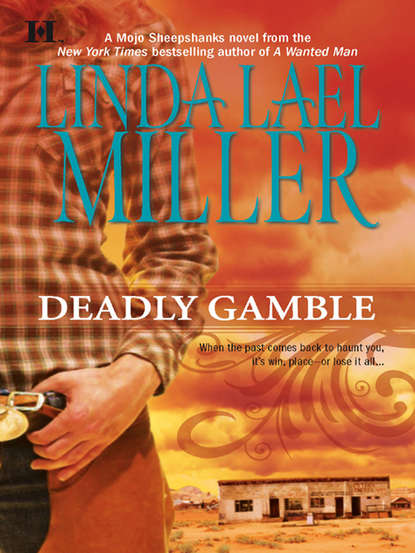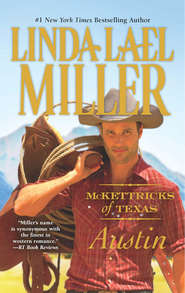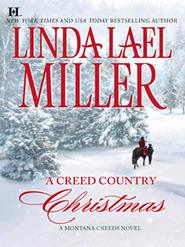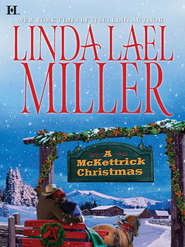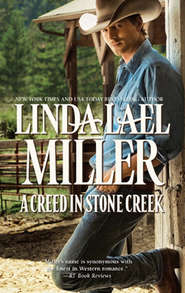По всем вопросам обращайтесь на: info@litportal.ru
(©) 2003-2024.
✖
Deadly Gamble
Автор
Год написания книги
2019
Настройки чтения
Размер шрифта
Высота строк
Поля
Bert paused in his coffee-making, waiting.
I finally shook my head. “She’s the same,” I got out.
“Then what?” Bert persisted, but gently. With the coffeemaker chortling and belching out fragrant steam, he flipped on the hot dog machine, opened the fridge tucked behind the bar and took out a package of frankfurters. I watched as he laid them carefully, one by one, on the gleaming steel bars rolling behind the glass.
“Something really weird happened last night,” I said, with understandable difficulty and no little reluctance. Russell laid his muzzle on my left forearm, mesmerized by the spinning wieners.
Bert arched his eyebrows, tossed the frankfurter package into the trash and washed his hands again. Time to rake the sawdust. I took comfort in Bert’s unvarying rituals, maybe because I had so few of my own. Most of the time, I felt as insubstantial as Nick’s ghost; I’d been living a lie for so long, I couldn’t recall the truth, if I’d ever known it in the first place. “Like what?” he prompted.
I turned on the bar stool as he reached for the rake leaning against the weathered board wall. “Like I saw my dead ex-husband last night,” I stumbled. There was no graceful way to say it.
Bert paused, rake in hand and gave a low whistle. “Dude,” he said.
Since some people would have tested my forehead for a fever, I was mildly encouraged. “Maybe I’m going crazy.” That was the thought that had kept me awake, too agitated to engage in my usual insomnia cure, which was to sit at my computer and work my way through one of the piles of medical billings that paid my bills. That and the fear that Nick would get a recharge and show up again if I lay down on the bed.
Bert began to rake noxious things into a pile between two massive pool tables. Anybody might think they were losing their mind if they’d seen what I had, but I had more reason than most. My parents were shot to death in our rented double-wide, down in Cactus Bend, when I was five years old. I knew I must have witnessed the murders, since I was found hiding in the clothes dryer off the kitchen, covered with their blood, but I had no memory of the incident, or of the next few months, for that matter. The first thing I could recall was waking up in a cheap motel, and Lillian dabbing at my face with a cold washcloth.
“I seen you do some strange things,” Bert said. “Like the way you can make a slot machine pay off pretty much whenever you want. You come by your name honestly, but you ain’t crazy, Mojo. Not you.”
My heart warmed. Actually, I didn’t come by my name honestly—or much of anything else, either. Like Lillian, I’d been using an alias for years—one I’d chosen myself, out of a library book—and some dead child’s social security number. As close as Bert and I were, though, I’d never told him the whole story. Even Nick hadn’t known, though maybe he did now. He’d seen his battered body after the accident, and he knew I’d cried at his funeral, so maybe being dead gave him a broader perspective.
Now there was a disturbing thought.
“He looked—real,” I went on. “Except that he glowed in the dark.”
Bert raked a little faster, and I hoped he wasn’t revising his opinion about my sanity. “Was there a reason for this visit?” he asked, without looking at me.
“We never got that far,” I said.
Bert glanced in my direction.
“Nothing happened,” I told him firmly, and without delay.
He grinned. “I never said it did,” he replied. “Give Russell one of them frankfurters, will you? He missed his breakfast.”
I slid off the stool and went around behind the bar, glad to have something physical to do, however mundane. “You shouldn’t let him eat stuff like that,” I said. “One of these days, he’s going to blow an artery.”
Bert got out the dustpan and leaned down to rake the pile into it. “Poor dog gets nothin’but diet kibble at home,” he said. Bert’s girlfriend, Sheila, ran a tight ship. “One sausage ain’t gonna hurt him.”
I opened the door, speared a frank and plopped it onto a paper plate.
Russell watched, salivating, as I cut it into bite-sized pieces with a plastic knife. “Like you don’t give him one every morning of his life,” I chided, but I set the plate down in front of Russell and smiled as he snarfed up the grub.
“My aunt Nellie saw a ghost once,” Bert ruminated, raking again. “It was her dog, Fleagel the beagle. He lived for seventeen years, and Nell swore she found crap on the same old place on the stairs for ten days after he croaked. She said that was how she knew she was going to die. When the beagle came back, I mean. Sure enough, a few weeks after the sighting, she bit the dirt, right in the middle of a game of blackout bingo.”
I gazed across the bar at him, hands resting on my hips. With anybody else, I would have felt self-conscious in my jeans, rumpled nightshirt and Sponge Bobs, but Bert was different. Like a brother. “That was a pretty insensitive remark,” I said.
“Aunt Nellie was a pretty insensitive woman,” Bert answered, without missing a beat. “If Uncle Dutch hadn’t been too embarrassed to call the cops on her, she’d have been run in on a domestic violence charge. The only thing she ever loved, far as I could tell, was that dog of hers.”
I returned to my stool but sat facing Bert, with my back to the bar. “We both come from dysfunctional families,” I reflected. “Maybe that’s why we get along so well.”
Bert chuckled, shook his bald head. “You know what worries me, Mojo? I can follow your logic, back-asswards as it is. Your brother went to prison for killing your folks. I was raised by two drunks and a pack of Labrador retrievers. We’re a pair to draw to, you and me.”
I nodded glumly. Bert’s knowledge of my background was limited to the bare facts, but I’d told him more than I’d told just about anybody else in my life, including Nick or the men I’d dated since the divorce. “By psychological standards, we ought to be in padded rooms by now.”
“If you mention seeing a ghost to the wrong person,” Bert mused, pausing to lean on the rake handle and regard me with concern, “you might end up in one anyhow.”
By then, my thoughts had shifted to Lillian. Maybe she was having one of her good days. Even if she was, she wouldn’t be able to carry on a coherent conversation, but she could listen, and she always seemed to enjoy a surprise visit. I decided to shower, dress and motor down the 101 to see her.
“You’re a real comfort, Bert,” I teased, already on my way to the side door, which stood propped open to the still cool mid-April air. In another month, it would be so hot the asphalt on the highways would buckle.
“You didn’t have your coffee,” Bert called after me.
I doubled back, filled a disposable cup, stirred in sugar and powdered creamer and raised the brew in a toast as I went by. “Put it on my tab,” I said.
Bert grinned and nodded, and I stepped out into the sunny parking lot just as another Harley roared up, flinging gravel, and came to a noisy stop beside Bert’s bike.
Tucker Darroch, my most recent bad romantic choice.
He shut off the bike and gave a salutelike wave. Clad in jeans, scuffed black boots and a blue muscle shirt, which showed off his biceps to distinct advantage, Tucker was the complete opposite of Nick, at least when it came to appearance. He was six feet tall, square jawed, and his honey-colored hair was too long, falling in his eyes and curling at the nape of his neck, while Nick was of average height, compactly built and born to the boardroom.
Tucker looked like a Hell’s Angel. In actuality, he was an undercover cop.
We’d done a little undercover work ourselves, Tucker and I. That was the best part of our relationship. The rest of it sucked, unfortunately, and we’d agreed, three and a half weeks before, to cool it for a while. Tucker was just wrapping up a nasty divorce, and he and the little woman were still duking it out over custody of their seven-year-old twins, Danny and Daisy.
Just watching Tucker swing a blue-jeaned leg over the seat of that bike made my nerves twitch. I wanted to nod a noncommittal greeting, climb the stairs to my apartment and go on about my business, but I might as well have been wearing cement shoes.
Tucker approached, his hips rolling in that easy, death-to-women walk of his. He shoved his hair back from his face and looked straight down into my eyes. “Nice getup,” he said, hooking his thumbs in the back pockets of his Levi’s.
It took me a moment to realize he was talking about my clothes. “It’s a fashion statement,” I heard myself say. “Care for a translation?”
He grinned. “I’ll pass,” he said lightly, but his green eyes were watchful, and slightly narrowed. “You okay? You’ve got dark circles under your eyes.”
Between Bert and Tucker, I was pretty clear that the current look wasn’t working for me. “I’m fine,” I said, a little too quickly.
Tucker pretended to dodge a blow. “Excuse me for asking,” he said.
I finally got my legs working again, and made for the stairs. “Things to do, people to see,” I explained airily over one shoulder, concentrating on 1—putting one foot in front of the other, then repeating the process, 2—not spilling my coffee, and 3—not running back to Tucker and jumping his bones in the parking lot. “Nice seeing you again.”
He didn’t answer, but I felt his gaze on me as I mounted the steps.
LILLIAN WAS NOT having one of her good days, as it turned out.
She sat in her wheelchair, in front of the one window in her fusty little room, a shrunken and fragile figure, arthritic hands knotted in her lap. A worn but colorful afghan covered her bony knees, and a lump rose in my throat as I remembered the woman she used to be. Her stepdaughter, Jolie, had crocheted that afghan for her long ago, as a Christmas present. Lillian had been luminous with delight that day, her laughter rich and vibrant, her brain and body in working order. Those painfully curled fingers had been busy, competent, glistening with shopping-channel rings.
Lillian was my babysitter, before my parents were murdered.
Shortly after the killings, she’d been my kidnapper.





